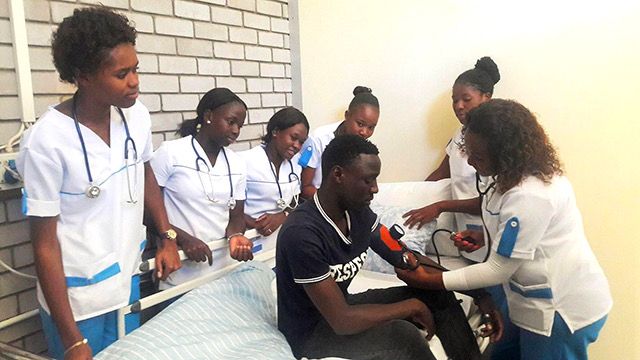An expert in international trade, Maria Immanuel, is calling for a more stable and reciprocal relationship between Namibia and the United States.
This comes as uncertainty clouds the future of the African Growth and Opportunity Act (Agoa).
Immanuel, speaking to Desert Radio yesterday, said Agoa’s structure, crafted by the United States (US) Congress, leaves African countries vulnerable to changes in US leadership and policy.
Agoa, enacted in 2000 and recently extended to 2045 by outgoing US president Joe Biden, is controlled unilaterally by the US Congress, meaning eligibility criteria are set by the US without African input.
This year alone, the Biden administration disqualified Niger, Gabon and Uganda from the programme over governance concerns.
“It is one-sided on how you should govern yourself for you to qualify for Agoa. In the international trade space, the Agoa agreement has always been unstable, whether it’s an administration change, or whether it is coming to an end.
“I know diplomatically we are coming to talk, but it’s almost like you’re begging again for the next renewal, and it is really not in a certain arrangement for long-term investment for the private sector,” Immanuel said.
Agoa, which grants duty-free access to US markets for over 6 700 products from eligible sub-Saharan African countries, has played a crucial role in Namibia’s exports of beef, charcoal and minerals.
Immanuel believes the risk for Namibia and African countries is particularly high with incoming US president Donald Trump, known for his ‘America First’ approach, returning to office after his Tuesday presidential election victory.
“Africa is recommending that we should move into the space where we are negotiating a stable reciprocal arrangement that should not be disrupted by a governance or change of presidency,” she said.
With large American companies like Chevron, which is investing in Namibia’s oil and gas sector, there is potential leverage for a reformed Agoa that is less vulnerable to political shifts in the US, she said.
Immanuel said the government should move away from relying more on social aid from countries such as the US and focus on bringing in capital that can build the economy.
“As an economist and international trade expert, I want to see a shift from less aid as Africa becomes much more resilient for itself and maybe look at how we can deploy or bring capital.
“Because again, we do have a big investment deficit,” she said.
Immanuel highlighted Namibia’s other trade agreements, such as with the European Union (EU), where more balanced partnerships ensure mutual benefits.
Unlike Agoa, these deals allow African nations to negotiate terms, fostering a reliable foundation for trade and investment.
She said Namibia’s beef exports to Norway, for example, are protected through the Southern African Development Community and EU agreements, providing security that Agoa’s eligibility-based structure lacks.
Immanuel said there is an opportunity for Namibia and its African counterparts to move away from dependency on external markets, pointing to initiatives like the African Continental Free Trade Area agreement.
Stay informed with The Namibian – your source for credible journalism. Get in-depth reporting and opinions for
only N$85 a month. Invest in journalism, invest in democracy –
Subscribe Now!










